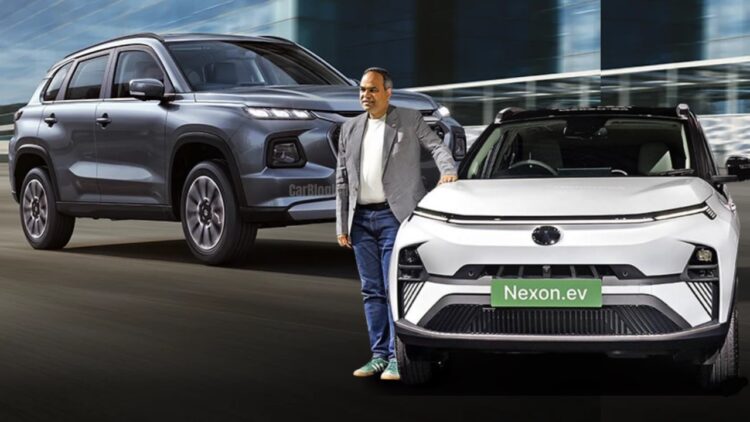In a recent development, Tata Motors, a prominent player in India’s electric vehicle market, has voiced strong opposition against any move to lower tax rates on hybrid cars. Shailesh Chandra, Managing Director of Tata Motors’ passenger vehicle and passenger EV divisions, believes that such a step could dilute the government’s efforts to achieve net-zero goals.
You may also like: Tata Punch EV vs Nexon EV Comparison – Which One to Buy?
Hybrids Not in Alignment with Net-Zero Objectives
Chandra emphasizes that hybrid vehicles, relying significantly on fossil-fuel engines, contradict the objectives of achieving net carbon-zero, improving air quality, and reducing fossil fuel imports. He argues that hybrids, using a small battery pack, fall short of aligning with India’s vision for a sustainable and electric future. “If any benefit is given to hybrid, it will just confuse the entire investment profile of all OEMs, it will be a digression from the main focus of ultimately moving towards zero emission technologies,” Chandra said.
Industry Disagreement on Tax Rationalization: The Department for Promotion of Industry and Internal Trade (DPIIT) and Ministry of Heavy Industries are contemplating tax rationalization on hybrid passenger vehicles. However, Tata Motors stands firm in its position, dismissing the idea of providing incentives for hybrids as a “misguided effort” by some Original Equipment Manufacturers (OEMs).
You may also like: Tata Motors MD Claims EVs Will Cost Same As Mass Market ICE Cars In 12-18 Months
You may also like: New Toyota Fortuner Could be India’s First-Ever Diesel-Electric Strong Hybrid SUV
Challenges and Existing Benefits
Chandra points out that technologies like Gasoline Direct Injection (GDI) and Compressed Natural Gas (CNG) already contribute to fuel efficiency without additional incentives. He highlights the existing 2% lower cess on hybrid vehicles, indicating that further benefits are unnecessary.
Industry Divide: The debate on tax rates has led to a clear divide within the automotive industry. Tata Motors, Mahindra & Mahindra, Hyundai, and Kia align on one side, opposing tax cuts. On the other side are Japanese carmakers Toyota, Suzuki, and Honda, advocating for reduced GST on hybrids. Tata Motors has consistently opposed hybrids, focusing solely on electric vehicles (EVs). Chandra reiterates that any incentive for hybrids would confuse OEMs and divert from the main goal of transitioning to zero-emission technologies. He underscores Tata Motors’ commitment to EVs and expects a 40% growth in EV sales in 2024.
You may also like: Differences Between Mild Hybrid, Full Hybrid and Electric Vehicles


